- Home
- Elizabeth Goudge
The Little White Horse Page 19
The Little White Horse Read online
Page 19
‘He ought to eat something. He ought to keep his strength up,’ said Robin.
‘He kept it up at breakfast,’ Maria said. ‘He had a leg of lamb, beefsteak and kidney pudding, and a ham. I wondered at the time how he could be so greedy; but now I understand.’
‘Lions like to do that,’ Robin explained. ‘They have a huge feed and then go all day on the strength of it.’
When they had all eaten and had a good drink from the stream, Maria folded up some sandwich papers that they did not need any more and pushed them down out of sight beneath the roots they had been leaning against. But Wrolf did not seem to approve of the spot she had chosen, for he fished them out again with his paw, picked them up in his mouth, carried them round to the other side of the tree, and dropped them there.
‘But they must be out of sight, Wrolf,’ said Maria. ‘I hate litter.’ And she gave them a vigorous push beneath a root. To her surprise, as she pushed the ground gave way beneath her hand and she nearly fell forward on her nose.
‘Look, Robin!’ she cried. ‘It’s just space down below!’
Robin came and knelt beside her and, peering down, they saw that there was a great hollow beneath the pine-tree. It would be quite possible for a small person to push his or her way between the roots and creep inside it.
‘Well!’ said Robin. ‘One could live down there, and nobody would know where one was. Now we’d better go on again. Wrolf seems ready.’
So they went on as before, Wrolf leading, on and on into the dark depths of the wood, which got deeper and darker the farther they penetrated, until at last it was so dark that they could hardly see their way at all. And then it got a little higher, and at last Robin said: ‘Look, Maria!’
They had come to the edge of a clearing in the wood, a desolate place like a quarry strewn with boulders, with stagnant pools of water between the rocks. On three sides the rock rose up sheer like a wall, and crowning the wall the way they were facing was a castle built four-square like a tower, so old that it looked like part of the rock upon which it was built. Upon each side of it, except just this side where its great gate looked down upon the clearing, the pine-trees closed about it with the darkness of night . . . It was a terrifying castle . . .
And the only way to reach it, so far as Maria could see, was to climb up the flight of steps that had been cut in the cliff beneath; and to do that they would have to leave the shelter of the pine-trees and cross the clearing under the eyes of whoever might be looking out of that window above the gate.
‘There’s another way,’ whispered Robin. ‘Wrolf showed it to me when we were here before. Look, he’s leading us that way now.’
They went back among the pine-trees, turned to their left in a wide half-circle, and began to climb steeply upwards, climbing over the rocks that had pushed themselves out of the ground between the pine-trees, and pushing their way through thickets of bramble bushes. Maria had to dismount and lead Periwinkle, and Robin carried Zachariah and Wiggins one under each arm, so that their thick fur should not catch in the brambles. Then they swerved round to the right again, and they had come right round to the back of the castle. Its frowning walls rose sheer up above them. But there was no door here. No windows even. Nothing but the great high wall, as high as the tallest pine-tree, with battlements along the top.
‘We climb up the tallest tree, and then on to the battlements,’ explained Robin airily. ‘I tried it the other day to see if it could be done, and it’s quite easy.’
‘I don’t believe Wrolf will find it easy,’ said Maria.
‘Oh, the animals won’t be able to get up,’ said Robin cheerfully. ‘We’ll have to go alone.’
Go inside there without Wrolf? Maria’s heart sank right down into her shoes. But she didn’t say a word. She just tucked up her riding-habit and prepared to follow Robin up the pine-tree. The branches grew low down on the trunk, and if she put her feet where Robin told her it would not be difficult.
But Wiggins wasn’t going to be left behind with Wrolf, not if he knew it. Wrolf might eat him. Before Maria was two feet off the ground he stood up on his hind legs against the tree and began to whimper pitifully.
‘Robin,’ said Maria, ‘I can’t leave Wiggins behind. He always goes where I go.’
‘Pass him up to me, then,’ said Robin good-humouredly. ‘I can hold him with one hand and climb with the other quite easily.’
So they descended, picked up Wiggins, and started once again. When they were half-way up Maria, feeling safer, dared to look down. Wrolf and Periwinkle and Serena were standing side by side at the foot of the pine-tree, with expressions of bland satisfaction and approval upon their furry faces. But Zachariah, Maria was astonished to see, was climbing up the tree just behind her . . . He was coming, too . . .
Somehow the presence of Zachariah made Maria feel much safer. He might be only a cat, but he was no ordinary cat.
The topmost branch of the pine-tree stretched like a bridge from the tree-trunk to the battlements, and had it not been for the awful drop below it would have been perfectly easy to wriggle along it. Had there only been a few feet between the branch and the ground Maria would have thought nothing of it. As it was, Robin seemed to think nothing of it. He wriggled across, with Wiggins under one arm, in the most carefree manner possible.
But when it came to Maria’s turn, she felt that she just simply could not do it. There seemed miles and miles of space beneath her. She just could not. When Robin, safely across, laid his free hand upon the battlements, she was still at the other end of the branch, swaying where she sat, sick and dizzy. She dreaded the moment when Robin would turn round and see that she was afraid . . . But she just could not do it . . . And then something black leaped over her shoulder to the branch in front of her, and she found a large black furry tail tickling her nose. With a gasp of relief she seized it with one hand as though it were a rope, shut her eyes, wriggled forward, and was towed by Zachariah along the branch to Robin, who was leaning over the battlements with arms outstretched to receive her.
3
When she opened her eyes again, the four of them were sitting together on the stone roof of the castle. It was like a courtyard, quite empty except for a sort of square stone box in the centre of it with a door in the wall. They sat and got their breath back, and then Robin walked to the door and opened it. Inside was a spiral stone staircase leading down into darkness. Without a word he picked up Wiggins and led the way down, Maria following with Zachariah at her heels.
The light from the open door behind them did not last long, and soon they were in pitch blackness. They went on, feeling their way, until Robin came up against another door. He fumbled for the latch, lifted it, and cautiously opened the door an inch. A vertical beam of light shone in the crack and he opened the door a bit wider and peeped round.
‘Come on,’ he whispered to Maria.
They crept through the door and shut it noiselessly behind them. They were standing in a small stone gallery from which a narrow stone staircase led to the great hall of the castle down below. It was evidently kitchen as well as hall, for a log fire was burning in the great hearth and huge chunks of meat were roasting on spits before it.
‘That will be Sir Benjamin’s beef,’ Robin whispered to Maria. ‘His best bull was stolen a few days ago, you know.’
‘No, I didn’t know,’ said Maria.
‘Well, it was,’ said Robin. ‘And Peterkin Pepper’s father had all his eggs stolen yesterday. And Prudence’s father missed a barrel of cider last Wednesday, and all Mrs Honeybun’s bread disappeared.’
There was a trestle table in the centre of the hall, and in the centre of it was a large dish of hard-boiled eggs. There were loaves of bread, too, and jugs of cider.
But Maria was not so much interested in the food as in the human beings in the hall. Two fierce-looking men, with black hair and beards, and leather aprons tied round their middles, were turning the chunks of meat on the spits and two more were setting plates and mugs
on the trestle table. Another was blowing at a brazier of coals with a bellows, and yet another was sitting on a stool and sharpening a lot of horrible-looking knives on a whetstone, and she didn’t like the look of any of them.
‘They are going to have dinner,’ she whispered to Robin. ‘They have their dinner very late.’
‘They have it when they’ve finished being wicked for the day,’ explained Robin. ‘We’ll wait until they’ve got Mr Honeybun’s cider inside them and are feeling good-tempered, and then we’ll go down.’
A door at the far end of the hall opened, and a very large man, taller than the others, with a huge black cock on his shoulder, came in with a gun in his hands and a couple of dead rabbits dangling from his belt. He was the man from whom they had rescued Serena. He was followed presently by five others, carrying baskets of beautiful fresh fish. They gave some of it to the man at the brazier, and he set to work to clean it and cook it over the coals. Then the men proceeded to pull off their boots and take their ease upon the benches that were set against the wall.
Maria counted. There were twenty of them altogether. Twenty large men and one large black cock, against two children, a very small dog, and a cat.
As soon as the meat and fish were cooked the meal began. The Men from the Dark Woods pulled the benches to the table and fell to with zest, and it made the children’s blood boil to see how they enjoyed their stolen food. The fish smelt delicious. They never had lovely fresh fish like that at the Manor. Even Zachariah’s fish-heads had to be brought by Digweed from the market-town and were of inferior quality. Zachariah particularly seemed to feel this very much, for as soon as they started on the fish he began to spit and swear softly under his breath.
Someone had once told Maria that stolen food and drink are never enjoyed, but she soon saw that this statement had been incorrect, for never had she seen anyone enjoy a meal as those wicked men did — not even herself and Sir Benjamin. They had started the meal rather bad-tempered, but as it went on and more and more of Sir Benjamin’s beef and Mr Honeybun’s cider and eggs and bread, and the beautiful fish from Merryweather Bay, went down their throats, they got jollier and jollier, until at last they were all talking at the tops of their voices, and laughing and singing and thumping the table. They made such a noise that the black cock flew up and sat on one of the beams and began to crow, and his crowing accompanied the words of the song they were singing.
COCK SONG
We are the men of the northern woods,
Of the moor, the hill and the sea,
Huntsmen, trappers and fishermen wild
Riding ways that are fierce and free.
We are the men of the great black cock
Who roosts so high on the tall pine-tree,
Crying cock-a-doodle, a-doodle,
Do! Do! Black cock on the tall pine-tree.
We are the sons of thunder and storm,
The frost and the wind and the snow,
We are tumult, the fear of the night,
And darkness wherever we go.
We are the men of the great black cock,
With inky feathers and sable crest,
Crying cock-a-doodle, a-doodle,
Do! Do! Black cock with the sable crest.
We are the men of dungeon and wall,
Of axe and of helm and of shield.
We are the men of cudgel and sword,
The fighters who never will yield.
We are the men of the great black cock,
Who crows so loud on the castle keep,
Crying cock-a-doodle, a-doodle,
Do! Do! Black cock on the castle keep.
And so did the music of Robin’s pipe, which he took from his pocket and began to play. When he had got the tune correctly he whispered to Maria, ‘Now!’
And then he marched off down the stone staircase, playing as he went, and Maria came next with Wiggins in her arms, and Zachariah followed, still spitting and swearing, with his huge tail uncoiled and waving angrily.
They advanced bravely up the hall towards the men, but they were nearly at the table before Robin’s sweet music penetrated the noise and made them look round. And then their astonishment was so great that they did not do anything awful, they just stopped singing and thumping the table and sat and stared, while Robin, still playing to the accompaniment of the crowing cock on the beam, came and stood on the left hand of the leader, where he sat at the head of the table, and Maria came and stood upon his right.
‘Good singing, good Sir!’ cried Robin in his clear voice, and so lovely was his playing that first one man and then another took up the song again until at last they were all singing once more.
As soon as that astonished silence came again Maria sat herself down on the bench beside her host, pulled a clean plate towards her and said in her clear silvery voice, ‘Please may I have some fish?’
And Robin also sat down, and said, ‘Me, too, please.’
And, scarcely seeming to know what he did, the leader stretched out his fork, speared two fish from the dish in front of him, gave one each to Maria and Robin, and at the prompting of a savage ‘Miaow!’ behind him cut off the fish-heads and flung them over his shoulder to Zachariah.
‘It’s delicious fish, Sir,’ said Maria, eating daintily.
And indeed it was delicious, and in spite of the big meal she had eaten in the woods she found she had quite an appetite for it, and felt less and less frightened the more she ate. By the time she was quite full she was also quite brave and, laying down her knife and fork, she dared to look right up into the face of the man beside her.
It was a face like an eagle’s, dark and wicked, with a cruel hooked nose and flashing black eyes that looked at one very directly but had no softness in them. His black eyebrows beetled alarmingly, and what could be seen of his mouth between his black moustache and thick beard was like one of his own cruel traps. Yet his eyes, though hard, were startled, and Maria knew by instinct that if you get people thoroughly startled you can do a lot with them.
‘Monsieur Cocq de Noir,’ she said very courteously, ‘I have long desired the pleasure of your acquaintance.’
At this she had her host more startled than ever. His eyes positively bulged. ‘What makes you give me the name of Cocq de Noir?’ he asked.
‘Because it is your name,’ said Maria. ‘I know who you are. You are the descendant of that little son of Black William’s who was supposed to have been murdered by Sir Wrolf. But he wasn’t. His mother took him away to safety in the far country beyond the valley. He never came back to the valley, but his sons did, and all of you here now are the descendants of his sons.’
The astonished silence that greeted this statement told Maria that she and Old Parson had put two and two together quite correctly.
‘My ancestor, Sir Wrolf, was very wicked to try to take Black William’s land away from him,’ went on Maria. ‘But he was not any more wicked than you are, poaching and stealing in the way you do.’
‘My land is unproductive,’ snapped Monsieur Cocq de Noir. ‘We cannot rear livestock in a pine-wood. Upon what am I and my men to live if we do not poach and steal?’
‘You should trade with the valley people,’ Robin piped up suddenly. ‘We never have any fresh fish in the valley. We’re longing for it. You should sell us your fish, and we would sell you our meat and eggs and poultry.’
Monsieur Cocq de Noir snorted with contempt. ‘It would be quite impossible for a Cocq de Noir to support himself in his ancestral castle with the dignity befitting his rank by selling fish,’ he said with an indignation that raised his voice gradually from an angry mutter to a shout of rage. ‘Where’s that string of pearls that my ancestress the Moon Maiden took with her to Moonacre Manor? Those pearls are the property of my family. Had I those pearls, I could sell them and live virtuously upon the proceeds until the end of my days. Wickedness has no attraction for me provided I can get what I want without it . . . Your family stole those pearls.’
‘We did n
ot!’ said Maria indignantly. ‘Those pearls have not been seen since the Moon Maiden disappeared. She lost them, or she hid them, herself. We didn’t do anything with them.’
‘Give me those pearls,’ said Monsieur Cocq de Noir, ‘and I might seriously consider the mending of my ways.’
‘How can I give you what was lost hundreds of years ago?’ asked Maria angrily. And then she remembered what Loveday had said about not getting angry and she tried to speak more calmly. ‘We ought not to quarrel,’ she said. ‘If you will forgive Sir Wrolf for trying to get his land away from Black William, Sir Benjamin will forgive you for all your poaching and stealing, and then if you will promise not to be wicked any more, we can all be friends for ever after . . . For we are distant cousins, you know. The Moon Maiden is my ancestress too.’
But Monsieur Cocq de Noir was getting angrier and angrier. ‘Though Sir Wrolf did not murder Black William’s son, he murdered Black William,’ he stormed. ‘And that is a sin that will not be forgiven while any Cocq de Noir lives.’
‘Sir Wrolf did not murder Black William,’ said Maria stoutly. ‘Black William just got bored with everything suddenly, like wicked men do, and went off by himself somewhere. And then I believe he just got into a boat and sailed away into the sunset.’
‘Prove it,’ shouted Monsieur Cocq de Noir, banging on the table with his fist. ‘Get me those pearls, prove to me that Black William was not murdered, and I’ll be a model of virtue till the end of my days.’
It was no good. Monsieur Cocq de Noir was being so utterly unreasonable in his demands that Maria simply could not keep her temper. Even though Robin leaned forward and made a warning face at her, and Zachariah miaowed a great reproving ‘Miaow!’, she simply boiled over.
‘You’re the most unreasonable man I ever met,’ she stormed, ‘as well as the wickedest! And if Black William was anything like you, I wouldn’t have blamed Sir Wrolf if he had murdered him — though of course he didn’t. And I’m ashamed to be your distant cousin, I am indeed.’
At this pandemonium broke loose. All the men leaped to their feet and shouted and waved their cudgels and guns, and the black cock on the beam crowed like mad, and Monsieur Cocq de Noir yelled at the top of his voice. ‘These are the most insolent children I have ever met. Put them in the dungeon and let them starve on bread and water. No sausages or apple-pie — only bread and water.’

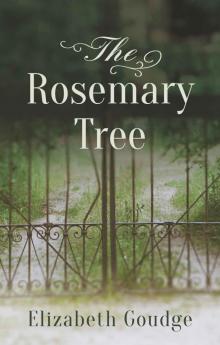 The Rosemary Tree
The Rosemary Tree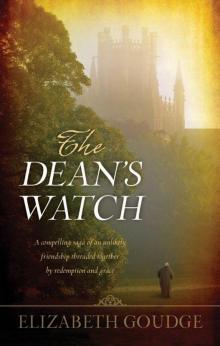 The Dean's Watch
The Dean's Watch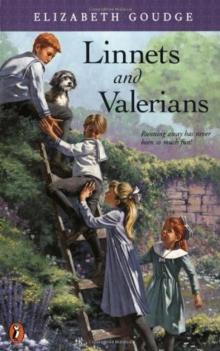 Linnets and Valerians
Linnets and Valerians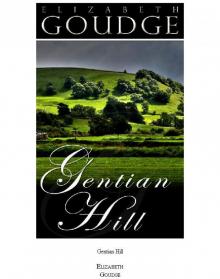 Gentian Hill
Gentian Hill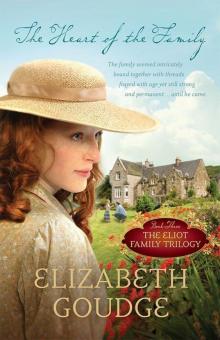 B00DRI1ZYC EBOK
B00DRI1ZYC EBOK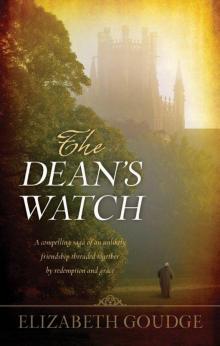 B008O6ZWTG EBOK
B008O6ZWTG EBOK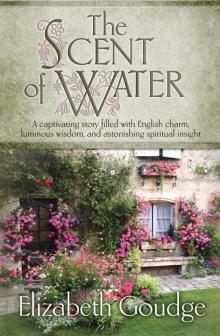 The Scent of Water
The Scent of Water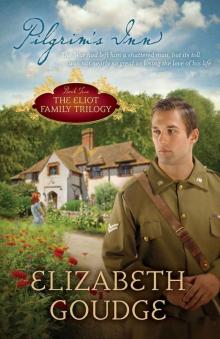 Pilgtim's Inn
Pilgtim's Inn Island Magic
Island Magic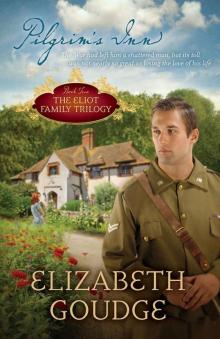 Pilgrim's Inn
Pilgrim's Inn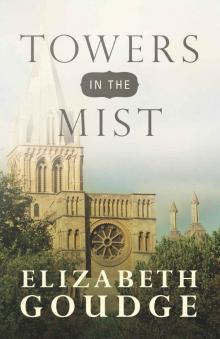 Towers in the Mist
Towers in the Mist Green Dolphin Street
Green Dolphin Street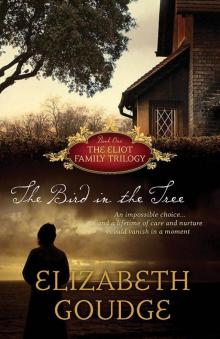 The Bird in the Tree
The Bird in the Tree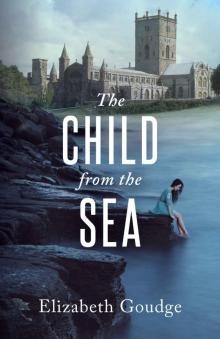 The Child From the Sea
The Child From the Sea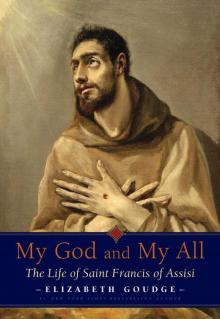 My God and My All: The Life of Saint Francis of Assisi
My God and My All: The Life of Saint Francis of Assisi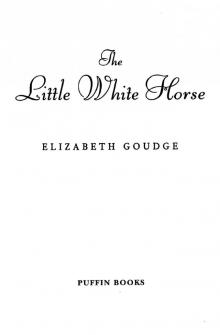 The Little White Horse
The Little White Horse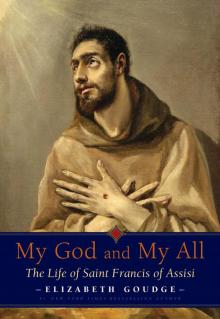 My God and My All
My God and My All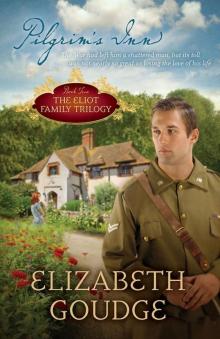 B00CKXCNH8 EBOK
B00CKXCNH8 EBOK